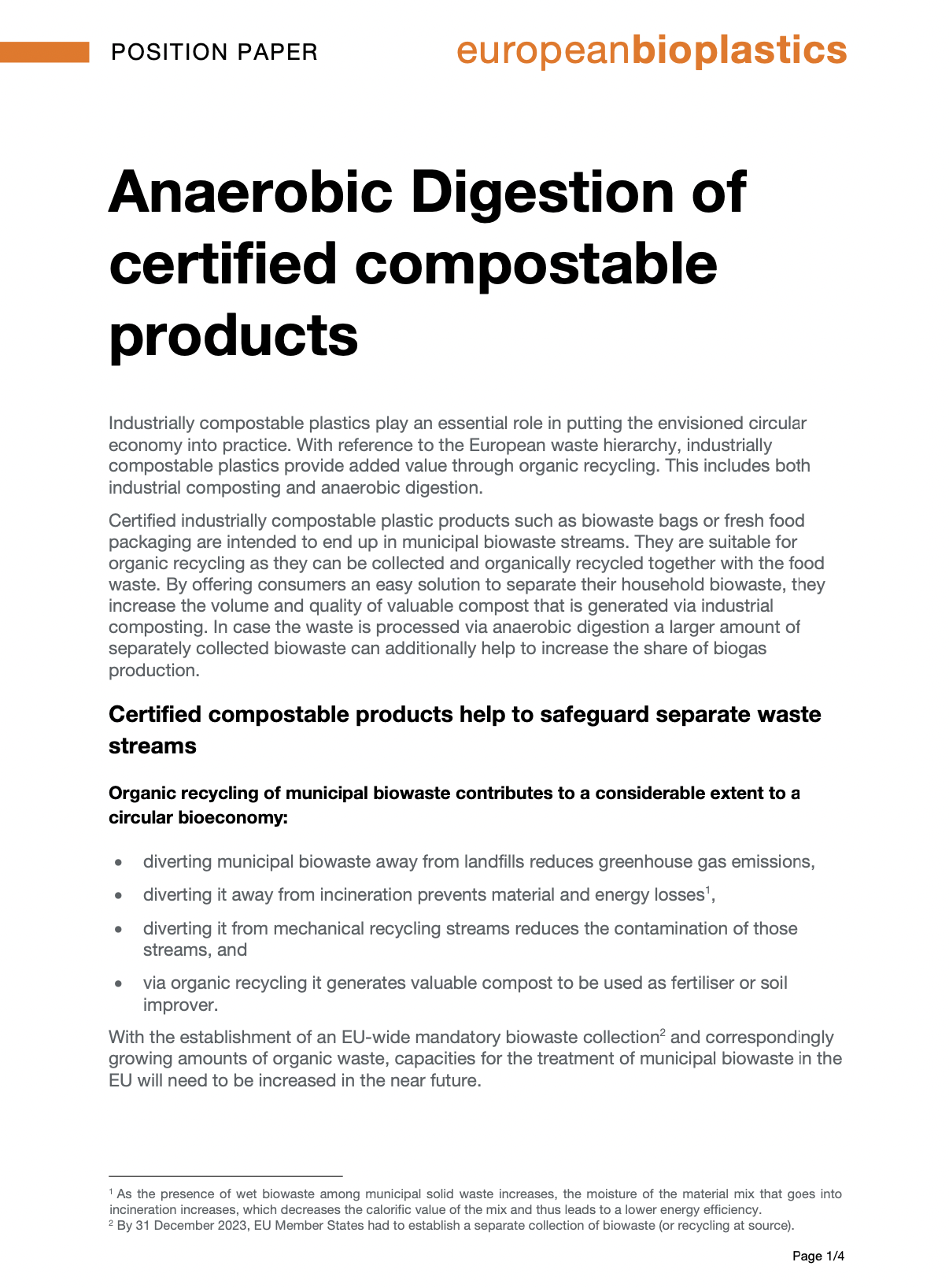Industrially compostable plastics play an essential role in putting the envisioned circular economy into practice. With reference to the European waste hierarchy, industrially compostable plastics provide added value through organic recycling. This includes both industrial composting and anaerobic digestion.
Certified industrially compostable plastic products such as biowaste bags or fresh food packaging are intended to end up in municipal biowaste streams. They are suitable for organic recycling as they can be collected and organically recycled together with the food waste. By offering consumers an easy solution to separate their household biowaste, they increase the volume and quality of valuable compost that is generated via industrial composting. In case the waste is processed via anaerobic digestion a larger amount of separately collected biowaste can additionally help to increase the share of biogas production.
CERTIFIED COMPOSTABLE PRODUCTS HELP TO SAFEGUARD SEPARATE WASTE STREAMS
Organic recycling of municipal biowaste contributes to a considerable extent to a circular bioeconomy:
- diverting municipal biowaste away from landfills reduces greenhouse gas emissions,
- diverting it away from incineration prevents material and energy losses,*
- diverting it from mechanical recycling streams reduces the contamination of those streams, and
- via organic recycling it generates valuable compost to be used as fertiliser or soil improver.
With the establishment of an EU-wide mandatory biowaste collection** and correspondingly growing amounts of organic waste, capacities for the treatment of municipal biowaste in the EU will need to be increased in the near future.
Separate collection of biowaste is an essential precondition for high-quality organic recycling. Certified compostable products have been proven to facilitate this separate collection and are instrumental to divert biowaste from the residual to the organic waste stream. ***,****,***** Since the beginning of 2024, separate collection and effective organic recycling need to be implemented by all member states of the EU. Additional measures should be in place to reduce the contamination (of e.g., glass, metals, conventional plastics) in the input streams to secure high quality final compost.
EUBP calls for the recognition of the significant contribution that certified compostable products add to the increased collection of municipal biowaste – especially food and kitchen waste.
——–
*As the presence of wet biowaste among municipal solid waste increases, the moisture of the material mix that goes into incineration increases, which decreases the calorific value of the mix and thus leads to a lower energy efficiency.
**By 31 December 2023, EU Member States had to establish a separate collection of biowaste (or recycling at source).
***Dubois, Sims, Moerman, Watson, Bauer, Bel, Mehlhart, (2020). Guidance for separate collection of municipal waste.
